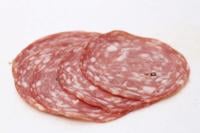U.S. President Donald Trump is threatening to up the ante in his tariff war against Canada by imposing a 35 per cent levy against Canadian imports starting Aug. 1.
Trump’s 90-day tariff pause, announced in April, expired on July 9, leading to speculation that Canada could be hit by steep levies unless a formal trade deal is reached between the two nations.
In an posted to Truth Social July 10 ‚ÄĒ complete with several instances of improperly capitalized words ‚ÄĒ Trump noted the U.S. previously imposed tariffs on Canada ‚Äúto deal with our Nation‚Äôs Fentanyl crisis, which is caused, in part, by Canada‚Äôs failure to stop the drugs from pouring into our country.‚ÄĚ
Canadian officials have less than one per cent of the fentanyl intercepted at the U.S. border comes from Canada.
Canada also implemented a $1.3-billion border plan that includes new helicopters and resources on the ground, as well as a ‚Äúfentanyl czar.‚ÄĚ
Trump also took direct aim at Canada‚Äôs economy in his open letter to Carney, stating: ‚ÄúThere will be no Tariff if Canada, or companies within your Country, decide to build or manufacture product within the United States and, in fact, we will do everything possible to get approvals quickly, professionally and routinely ‚ÄĒ In other words, in a matter of weeks.‚ÄĚ
Starting Aug. 1, Trump said the U.S. will impose a 35 per cent tariff on Canadian products sent to the U.S., separate from all sectoral tariffs.
According to , an anonymous White House official said the 35 per cent tariffs will only apply to goods not compliant with the 2020 trade deal Trump negotiated, known in Canada as the Canada-U.S.-Mexico agreement (CUSMA).
Trump also targeted Canadian tariffs on U.S. dairy products, even though the levies only apply in rare situations.
In a now-deleted , James Moore, who served as Canada’s industry minister under the Stephen Harper Conservative government, said Trump is lying in saying Canada has a 250 per cent or more tariff on U.S. dairy.
Moore noted tariffs are only in effect when Canada imports more than 13 million gallons of milk, 27.56 million pounds of cheese, or 11.02 million pounds of butter/cream per year.
‚ÄúWe never exceed this. And, it is part of the (CUSMA) deal he negotiated,‚ÄĚ Moore said.
Carney’s response to Trump letter
Throughout the current trade negotiations with the United States, the Canadian government has steadfastly defended our workers and businesses. We will continue to do so as we work towards the revised deadline of August 1.
‚ÄĒ Mark Carney (@MarkJCarney)
Canada has made vital progress to stop the scourge…
Responding to Trump’s letter on X, Carney, vowed to defend Canadian workers and businesses. He also referenced a revised timeline of Aug. 1 to reach a new trade deal with the U.S. Carney had previously alluded to a July 21 deadline.
‚ÄúCanada has made vital progress to stop the scourge of fentanyl in North America,‚ÄĚ Carney said. ‚ÄúWe are committed to continuing to work with the United States to save lives and protect communities in both our countries. We are building Canada strong.
‚ÄúThe federal government, provinces and territories are making significant progress in building one Canadian economy. We are poised to build a series of major new projects in the national interest. We are strengthening our trading partnerships throughout the world.‚ÄĚ
Trump‚Äôs letter to Carney ends with the suggestion that Canada‚Äôs tariffs could be adjusted, ‚ÄúIf Canada works with me to stop the flow of Fentanyl.‚ÄĚ
But previous tariff announcements have already rocked the Canadian economy.
On June 4, on Canadian steel and aluminum imports from 25 to 50 per cent.
Has Canada entered a recession?
A recent survey from , a digital financing firm for small businesses, suggests most Canadian small business owners believe Canada has already entered a recession.
In a June survey of 150 small business owners, Merchant Growth noted 61 per cent of respondents said Canada is already facing an economic downturn. Three-quarters of businesses surveyed said access to low-interest loans would help, along with tax relief, subsidies, and less red tape.
Merchant Growth said economists remain divided as to whether Canada has officially entered a recession. While inflation has cooled and interest rates remain high, gross domestic product (GDP) growth has stagnated and consumer confidence has softened, the company noted.
While the Bank of Canada does not have an official definition of a recession, economists have defined it as a period of .
While it’s unclear whether Canada has officially entered a recession, Merchant Growth’s survey suggests small businesses continue to feel the pinch of an ongoing U.S.-Canada trade war.
Among the small businesses surveyed, 76 per cent said they have cut spending and 38 per cent have delayed hiring, the survey found.
Error! Sorry, there was an error processing your request.
There was a problem with the recaptcha. Please try again.
You may unsubscribe at any time. By signing up, you agree to our and . This site is protected by reCAPTCHA and the Google and apply.
Want more of the latest from us? Sign up for more at our newsletter page.





















To join the conversation set a first and last name in your user profile.
Sign in or register for free to join the Conversation